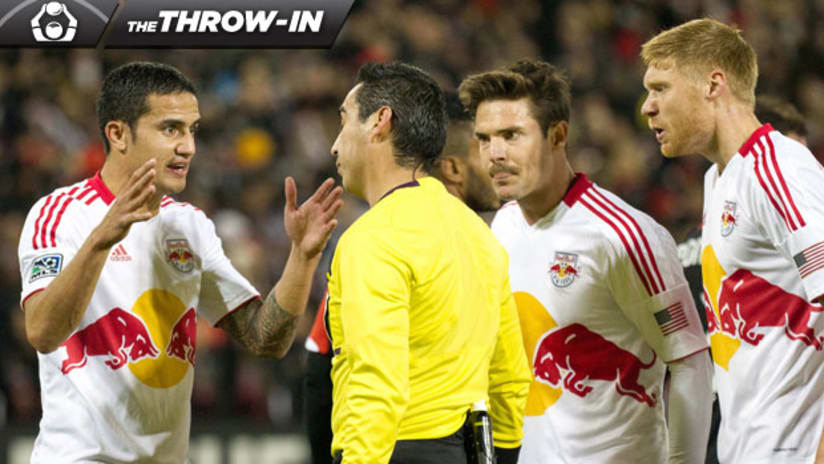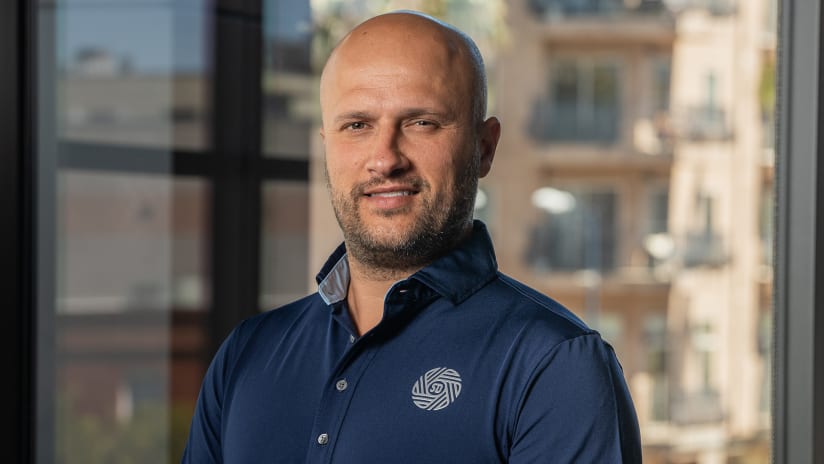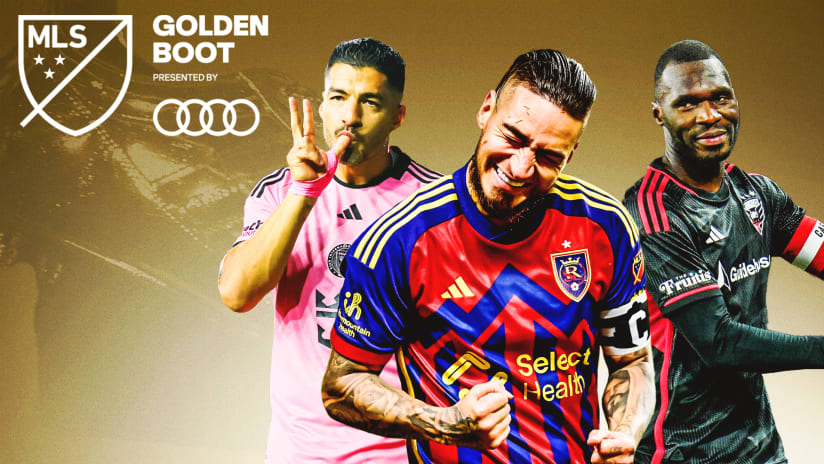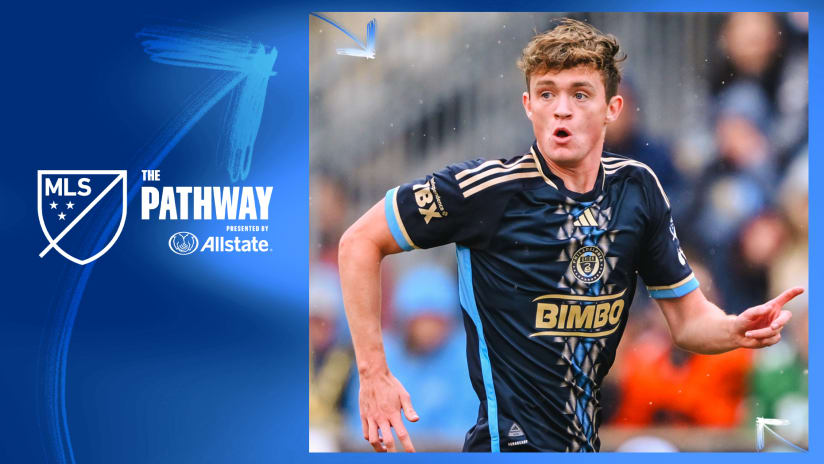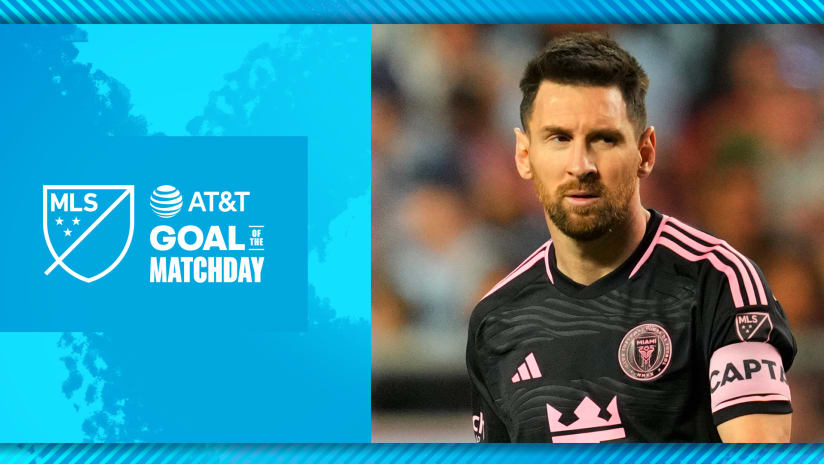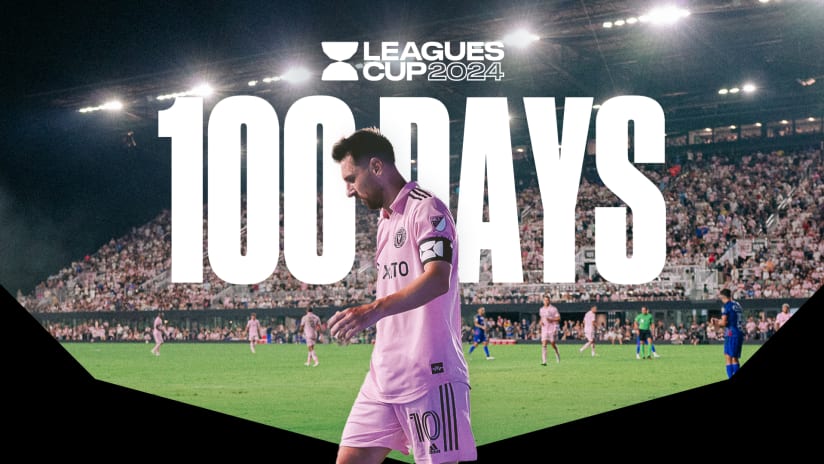Players vs. ref. It’s a scene we’ve all seen play out a million times.
The official whistles play dead and makes a contentious call that has the potential to change the outcome of a match. The offending team takes exception and surrounds him in anger, arguing their case and pleading for an explanation of why the call was made.
Patrice Bernier has a giggle when he’s asked about these sorts of situations. He’s seen plenty since joining his hometown Montreal Impact last year after a nine-year career in Europe. But there’s one that sticks out in his head.
With his Impact in total control against the New York Red Bulls last March, up 2-1 on the road with halftime approaching, Mateo Ferrari took down Dax McCarty in the Montreal box. Referee Michael Kennedy blew his whistle and pointed to the spot, ruling the Italian defender had made a reckless challenge on the Red Bulls midfielder.
Kenny Cooper buried the ensuing spot kick, but the lasting image of that game is of no fewer than five Impact players surrounding Kennedy in a passionate scrum, knowing that call might turn the tide. (And it did, as New York stole the momentum and ended up winning easily, 5-2.)
WATCH: Ferrari takes down McCarty in box
Even now, when you watch the video (at right), it looks like the situation has the potential of getting out of control. But it’s not.
“It looks a lot worse on TV than it is,” says Peter Walton of the Professional Referee Organization, which manages the officiating crews in Major League Soccer. “What people don’t understand is that the ref is in full control – he’s focused on one individual. He’s not aware of the players around him.”
It’s known as “man management” – the ability to control tense situations as they occur in real time in order to prevent the drama from escalating. And it’s a concept Walton takes very seriously as general manager of PRO, as the organization continues to evaluate its officiating crews.
MLS has taken steps to minimize what it deems “mass confrontation,” and now hands out fines for instances of more than two players approaching a referee. But PRO is trying to prevent such situations at the source.
READ: THE WORD: How is PRO doing one year into its MLS project?
Intellectually, all players know the ref is there to protect not just their interests, but those of the other team, to uphold the laws of the game and to protect both teams within the rules. But in the heat of the moment, intellect goes right out the window.
“The referee-player relationship will always be adversarial, just like players with their opponents,” says Colorado Rapids captain Drew Moor (below right). “Everybody’s job is on the line.”
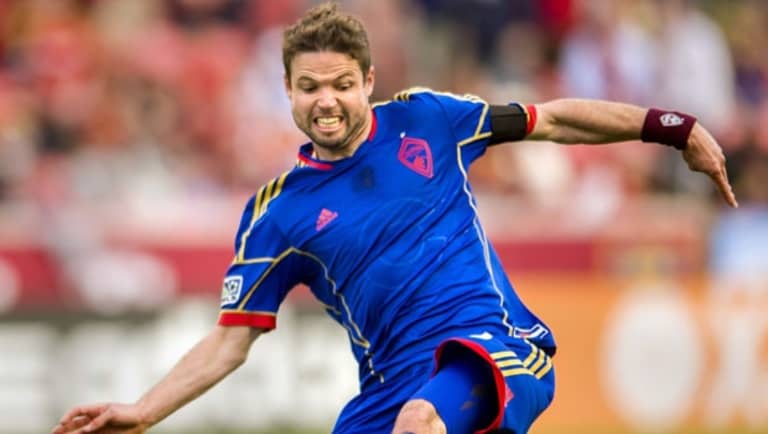
Walton is trying to change that. What’s missing in MLS, he believes, is the sort of workplace-style relationship between players and officials that breaks down the traditional barrier between supposed adversaries.
And he believes that by changing the culture of that relationship – by doing a better job of humanizing officials – that those heated scenes we’ve all come to recognize won’t be so heated.
“Players have got to see referees as human beings. Surprisingly, some actually are human beings,” jokes Walton. “That’s a good start. What I’m encouraging for refs and players and coaches to at least talk outside the cauldron of match days. That way, when the pressure is on, that experience might help in nipping things in the bud rather than everyone dealing with each other only on a reactive basis.”
To that end, PRO has begun a program where a member of its staff as well as one match-day official make a trip to every MLS team camp during preseason with the goal of drawing the curtain back on who the man with the whistle is, and where he’s coming from.
Starting this season, Walton is also encouraging officials to visit teams during training and interact with them more, perhaps on Reserve League game days, to the point where they know a little bit more about the players they’re officiating and vice versa.
READ: Did Gordon deserve this red in Portland? You make the call!
That familiarity won’t happen overnight, he’s quick to add, but it’s an arena in which MLS must make headway to improve the player-official relationship.
Moor, for one, is all in favor of that. He says he’s been fortunate over a 10-year pro career in that he knows every referee in the game and has personal experience with each one. But taking extra steps to give more players that familiarity is key to fostering a better relationship.
“At end of day, the ref’s a human being like the players,” he says. “He makes mistakes. But any time you can see them and speak with them away from the game – whether it’s talk with them before coin toss, or when we go out for the [national] anthem or otherwise – that’s big. It’s important to shake their hands and appreciate what they do, because they’re going into a battle just like us.”
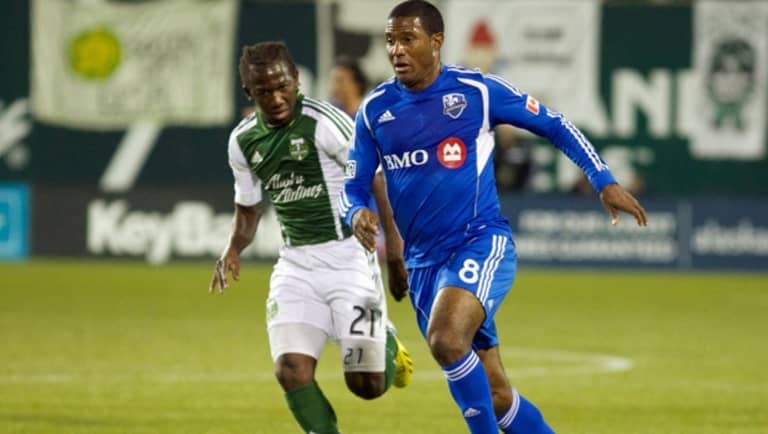
Going back to that early-spring day at Red Bull Arena last March, if you look at the call again, you notice that Kennedy makes an extra effort to explain himself carefully to the angry Impact players. He’s fully within his right to speak only with Davy Arnaud – who wore the captain’s armband that day – but he manages the situation in a professional manner.
And that’s exactly the type of referee Bernier (at right) wants to see.
“Me, I’m more in favor of a referee who is more player-friendly,” he explains. “Not that they’ll let things go. But they’re more talkative. You can ask what the call was and they’ll give you an answer – at least a quick answer.”
Ideally, those scenes of the angry scrum around the official hopefully will become obsolete.
“My job [as captain] is to keep my players focused on beating the opposition instead of trying to convince the referee to change his mind,” Bernier adds, “which I’ve never seen happen anyway.”
Jonah Freedman is the managing editor of MLSsoccer.com. “The Throw-In” appears every Thursday.

